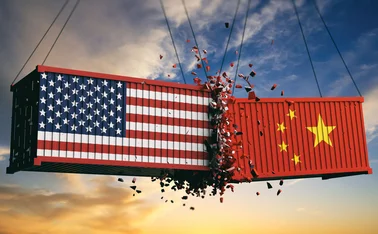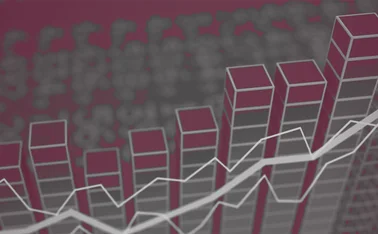
Forging environmental consensus – Building a green Silk Road
Fang Li, deputy director of the Foreign Economic Co-operation Office at the Ministry of Environmental Protection, hopes to step up environmental co-operation to build a green Belt and Road Initiative


The Belt and Road Initiative (BRI) not only concerns the interconnectivity of industries, finance, trade and policies, but also of people. Countries along the Silk Road Economic Belt differ in terms of economic development, resource endowments, cultural traditions and religious beliefs. So how can common values possibly be found among them? One powerful commonality would appear to be environmental protection – a cause that can unite and lead towards consensus.
At the 2015 UN General Assembly, 193 countries entered into the Sustainable Development Goals (SDG) agreement – 17 targets to be achieved by 2030 – which include bringing an end to poverty and hunger, further protecting the environment and preserving common prosperity. At the Belt and Road Forum for International Cooperation in held in Beijing in May 2017, President Xi Jinping proposed the establishment of an international coalition for the green development of the BRI, and to implement the new concept of green development in a low-carbon, cyclical and sustainable manner. Meanwhile, a big data service platform on ecological and environmental protection should be launched to strengthen eco-environmental co-operation. The BRI will be a carrier of ecological civilisation, assisting countries in the region to deal with climate change. As a result, nations along the Silk Road Economic Belt will be able to achieve the goals set out in the SDG agenda.

In China, the Ministry of Environmental Protection, Ministry of Foreign Affairs, National Development and Reform Commission and Ministry of Commerce issued Guidance on promoting green Belt and Road. Undoubtedly, being environmentally friendly not only helps to ‘Go Out’, but can also provide an important guarantee of ‘going further’. China’s perception of environmental civilisation has evolved – whereas previously, when promoting business and investment, local governments often paid scant attention to environmental concerns or consequences, they are now fully aware of the enormous cost of economic development. Awareness of the need for environmental protection has also greatly improved. President Xi’s declaration that “green mountains and clear rivers are equal to mountains of gold and silver” has prompted different industries to set up in industrial parks, lowering the cost of enterprises and making comprehensive environmental governance possible. Such examples point towards better development through the BRI. Historically, environmental pollution has expanded geographically after the early steps of development, eventually becoming a global issue. A green BRI will tackle problems within the global environmental governance structure and achieve further development with lower resource costs and reduced environmental impact.
The ICC hopes co-operation among stakeholders will play a constructive role in promoting a green BRI
Since being established in 1989, the International Co-operation Centre (ICC) of the Ministry of Environmental Protection has learned a great deal by collaborating with the World Bank and the Asian Development Bank on loan-related issues. The ICC is currently the only executive body of green climate funds in Asia that aims to reduce project costs through international co-operation, and is the sole implementation agency for the Global Environment Facility in China. Many enterprises lack a basic understanding of environmental policy for the countries and regions in which they intend to start business ventures. The ICC can assess environmental and social risks to help these enterprises avoid them more deftly. Moreover, the ICC is also promoting a green finance demonstration pilot. It is now working on Green credit guidelines in collaboration with the China Securities Regulatory Commission and the China Banking Regulatory Commission, among others.
Green finance, green debt
The ICC and the UN Industrial Development Organisation (Unido) are working closely together to champion green industrial parks to reduce environmental management costs for enterprises while also alleviating some of the risks of environmental pollution. With regard to policy, the ICC is studying laws and regulations in the countries along the Silk Road Economic Belt, and looking to reduce the cost of ‘Going Out’. In the field of green finance, it calls for the establishment of environmental standards in infrastructure construction and invites relevant stakeholders to participate in policymaking. In trade and production, consumers can be assured of product information through trademarks, and China has accumulated practical experience in a circular economy. On the financial front, China’s green debt was zero in 2014, though the issuance of green debt now accounts for more than 40% of the global share.
The ICC hopes for environmental protection to promote interconnectivity among people. International institutions and programmes such as the UN Environment Programme, the UN Development Programme and Unido have expressed interest in building a green BRI, and they are surely capable of endorsing participating enterprises. It is essential to jointly make good use of these resources. In short, the ICC hopes co-operation among stakeholders will play a constructive role in promoting a green BRI, allowing China to build a green Silk Road for all humanity.
Only users who have a paid subscription or are part of a corporate subscription are able to print or copy content.
To access these options, along with all other subscription benefits, please contact info@centralbanking.com or view our subscription options here: http://subscriptions.centralbanking.com/subscribe
You are currently unable to print this content. Please contact info@centralbanking.com to find out more.
You are currently unable to copy this content. Please contact info@centralbanking.com to find out more.
Copyright Infopro Digital Limited. All rights reserved.
As outlined in our terms and conditions, https://www.infopro-digital.com/terms-and-conditions/subscriptions/ (point 2.4), printing is limited to a single copy.
If you would like to purchase additional rights please email info@centralbanking.com
Copyright Infopro Digital Limited. All rights reserved.
You may share this content using our article tools. As outlined in our terms and conditions, https://www.infopro-digital.com/terms-and-conditions/subscriptions/ (clause 2.4), an Authorised User may only make one copy of the materials for their own personal use. You must also comply with the restrictions in clause 2.5.
If you would like to purchase additional rights please email info@centralbanking.com







